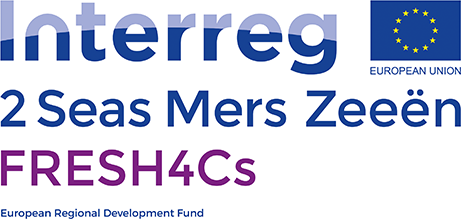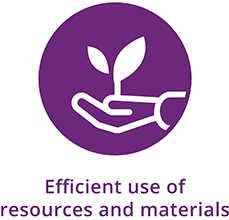Kruiningen case


Lamb Weston / Meijer sees possibilities to provide fresh water for local potato growers with cleaned process water (effluent) from the potato processing plant in Kruiningen to improve the crop.
The summer of 2018 made clear that in hot and dry periods the growers need to use a lot of fresh water to let their potatoes grow. Due to rising sea levels the in coastal areas the surface water is becoming more salt and is not fresh enough to use as irrigation water for agriculture during dry periods. And that has also a strong effect on LW/M, who needs high quality and big sized potatoes in their processes to make fries. And it is also good to realize that the potato produces more food per unit of water than any other major crop.
The Kruiningen potato plant uses about 1,5 million m3 of water to turn a potato into a Lamb Weston fry or potato product. Since water reduction is one of the objectives in the LW/M Sustainability program, one of the ambitions is to reuse cleaned process water. Evides Industriewater, who delivers the process water to the plant, invested in a Ultrafiltration system (Innowater) operational since FY20. With this investment LW/M needs less fresh water from the natural resource Biesbosch.
However, the used process water from the potato processing plant is currently discharged into the sea (Westerschelde), meaning treated and good-quality water goes to waste. This means room for improvement! In FRESH4Cs we take on the challenge to reuse cleaned process water for local farming.
We come across 2 main hurdles in this process: 1) How can we transport the water to the farmers by using the natural water systems in the area? 2) How can we reduce phosphates to a level acceptable for discharging water into the ditch?
Pyrophosphate preventing potatoes from becoming grey after cooking is the biggest contributor of phosphates in the waste water after processing. The starch in potatoes also contains phosphate, released during processing. By improving the recovery of white starch while cutting the potatoes we prevent phosphate from ending up in the process water treatment.
LW/M is an official partner in the FRESH4Cs project with the aim to share knowledge through the program. In this project they work with an internal expert team in close collaboration with a team of students from the HZ University of Applied Science over a period of three years.
The monitoring plan started with a technology assessment on:
-the effect of Innowater on effluent
-the effect of white starch investment
-the result of SAPP recycling pilot
The research started with a literature study to identify the most common removal techniques for Total-P resulting in ideas to tackle this problem including removal by filtration, followed by testing the different scenarios.
The results so far:
In all of the tests a lab-scale system with different removal techniques was set-up using water from LWM to investigate if Total-P could be reduced. They wrote down their own experimental protocols an presented their results to the internal LW/M team.
They theninvested in new starch recovery unitswhich improved the recovery rate with more than 30%. An additional investment was made to facilitate the transportation of the water to the local growers through pipelines. This investment is integrated in the new French fry plant to expand the production capacity in Kruiningen. This plant is designed to process potatoes with a minimum amount of water and energy, fitting Lamb Weston / Meijer’s 2030 Sustainability Agenda.
The ideal scenario after 3 years of intensively work on the Fresh4C’s project, is to have a technical solution that helps local growers during dry periods to increase their fresh water availability. And what impact could this have when also implemented in the other 5 plants LW/M in Europe?


